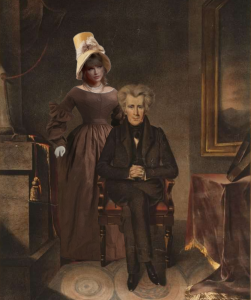
I think every American boy from age eight to 10 is obsessed with kung-fu. From “Teenage Mutant Ninja Turtles” to the Super Nintendo classic “Street Fighter,” martial arts seems to be the pinnacle of refined cool.
So as I picked up “Yoshimi Battles the Pink Robots” in the summer of 2005, about three years after it came out, I was ready for a trip back to my childhood.
I knew the Flaming Lips were a sort of throwback to early Pink Floyd psychedelic pop, but this was only a minor fact compared to the art on the front.
The cover featured a painting of a giant pink robot advancing on the tiny kung-fu master, Yoshimi, who appeared to be wearing a potted plant on her head.
Above the title was a line of Japanese script, placing the record solely into the Japanese-inspired pop culture crossover. I was hooked before I even listened to it.
“Yoshimi Battles the Pink Robots” is without a doubt one of the most finely crafted pop albums of all time. It shines and glistens throughout every track, and singer Wayne Coyne does not choose to simply embrace traditional pop lyricism.
The songs highlight themes of mortality, depression, unrequited love and faith in oneself. By embracing traditional pop music, The Flaming Lips had found a way to write and sing its darkest songs while making them easily accessible and enjoyable.
Expanding its repertoire to include electronica and pop, they even managed to become continuously interesting rather than simply continue the psychedelic trends of the past.
The album begins with “Fight Test,” a track that perfectly sums up the style of the album. The whole song is dense, but not in a traditional sense.
Coyne layers his echoed voice behind a heavy bass and a tight drumbeat in order to make the track feel huge, disguising how open the music really is.
The lyrics also follow in this deceptive trend with Coyne singing simple verses such as “‘Cause I’m a man, not a boy / And there are things you can’t avoid / You have to face them / When you’re not prepared to face them,” showing a rather simple idea in a track full of “sunbeams,” “starlight” and lost love.
The Flaming Lips had ultimately embraced the idea of the simplicity of a children’s band singing the themes and ideas that would be important to older listeners.
On the song, “Yoshimi Battles the Pink Robots Pt. 1,” Coyne expresses an intense sense of self-doubt and fear over the fate
of humanity.
Although he is fearful of the pink robots, and hoping the imaginary Yoshimi can defeat them, it still represents a very real fear in a way that is understandable to any listener.
Once again, the song has a very open sound with a sort of folk underpinning to Coyne’s voice. It makes for a simple straightforward affair, but still interesting and deep.
The most well-known moment of the album is the glistening “Do You Realize??” Featured on several commercials over the last few years and even appearing on the radio. The song is famous for its simple but beautiful line “Do you realize / you have the most beautiful face?” Once again, the song is so simple, full of bright and cheery looks at love and mortality so anyone could understand.
In a time when so many artists were embracing complex song structures and nearly indecipherable lyrics, The Flaming Lips continued to be rebels by writing the most simple and stunning album that they could make.
By all standards, “Yoshimi Battles the Pink Robots” is the cornerstone of all modern indie pop. Bands such as Of Montreal have experimented with the light sounds and dark lyrics since “Satanic Panic in the Attic.”
The framework the Flaming Lips put in place with “Yoshimi” is so very unique, and has made it a landmark for modern rock.




